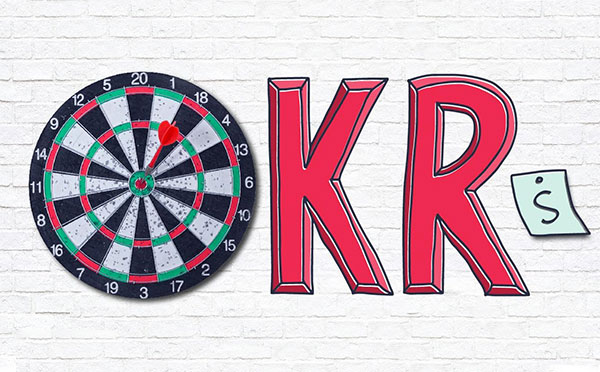
The goal-setting strategy that took Google to $1trillion
12th March 2021 – It’s a strange quirk of history that John Doerr isn’t a household name. Technophiles, entrepreneurs and management experts have heard of him, but otherwise he remains relatively obscure.
Doerr is a venture capitalist – he backed Google in the early days. But what really makes him interesting is his other contribution to the success of the internet giant – and countless other companies and organisations besides.
Doerr introduced Larry Page and Sergey Brin to a system for driving and managing growth that has ultimately led Google to become one of the most valuable companies in the world.
He is the promoter of a management methodology called Objectives and Key Results – OKRs for short. Don’t let the bland title fool you: this is the stuff of legend. The full explanation is in Doerr’s book Measure What Matters – which I’ve just finished reading – but here’s the short version.
OKRs are a way of focusing the efforts of everyone in your organisation on the same important things that generate growth. The “Objectives” are the goals – achievable yet inspirational. The “Key Results” are how you know you’re making progress towards those goals. These are always number-based, measured regularly, and a combination of short-term and long-term ambitions.
Doerr describes OKRs as “a vaccine against fuzzy thinking”.
Regular readers of this blog will know that BigChange recently took on a strategic investor, and that we are now on a growth journey that I believe will take us from a valuation of £100m to £1bn.
OKRs will be vital in the pursuit of this ambitious goal.
- BigChange want to become a global leader in field service management – both in terms of growth and by reputation
- BigChange want to deliver all our services to customers in a frictionless way
- Build the BigChange network and empower other businesses to grow
There are key results associated with each of these goals. Everyone in the management team has their own list of OKRs, and we have processes in place to keep all of us accountable.
The idea is to distil everything we want to achieve into a structured approach. Don’t make the shopping list too long: the team needs to feel excited and empowered to reach these goals, not overwhelmed.
Alongside Google, Intel, the Gates Foundation – even U2 – have used OKRs to achieve their goals. It is so humbling to be taking our first steps along this journey.
I’ve shared these OKRs with you, so that any other business owners interested in this process can get some insight into our approach. I’d love to hear about your experiences with OKRs too. In a few years, I hope I look back at this post and think, “That was the turning point. The time our growth trajectory reached a new level.”
